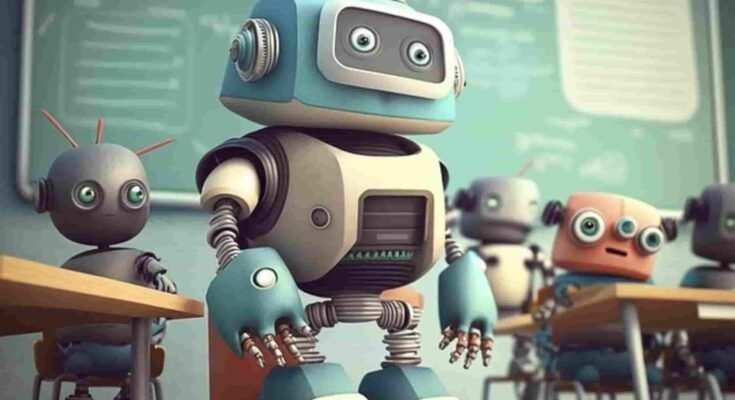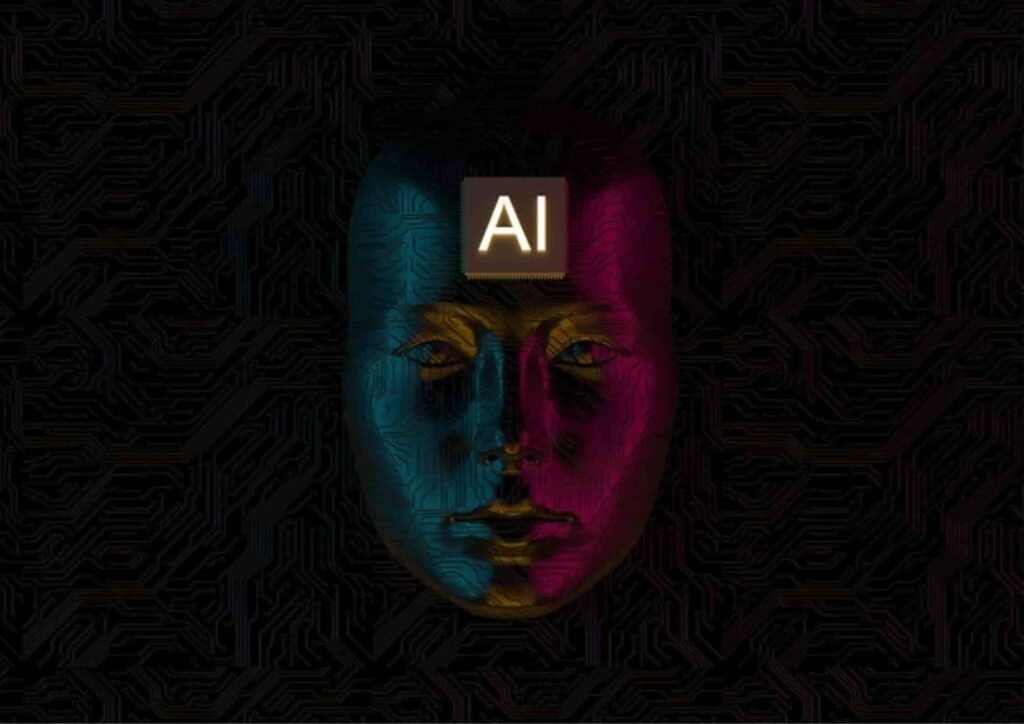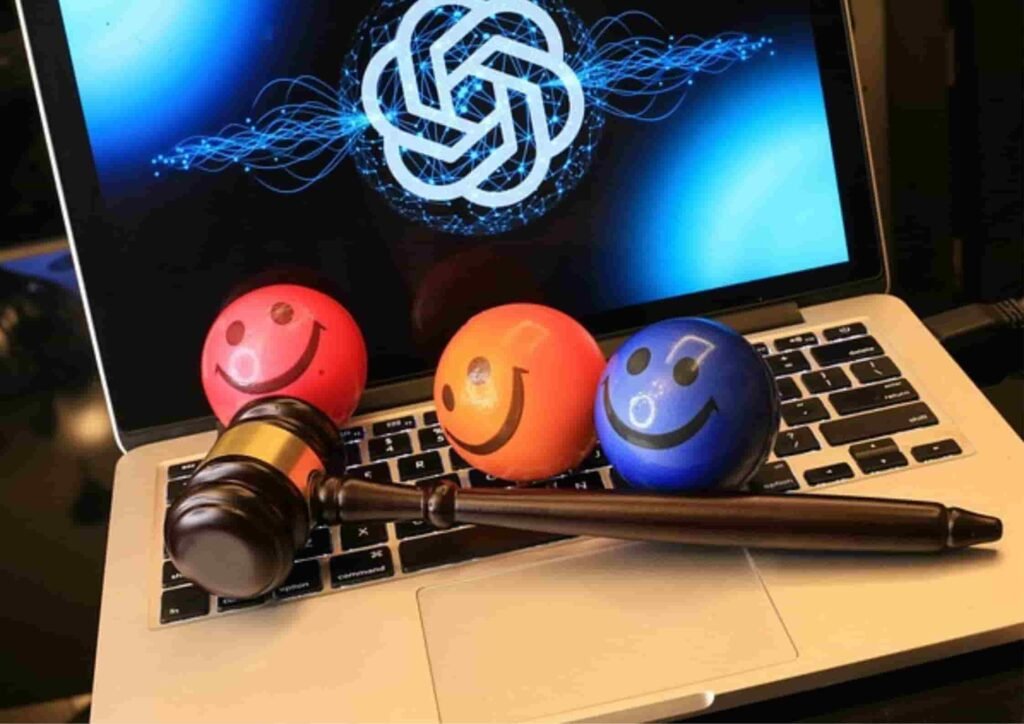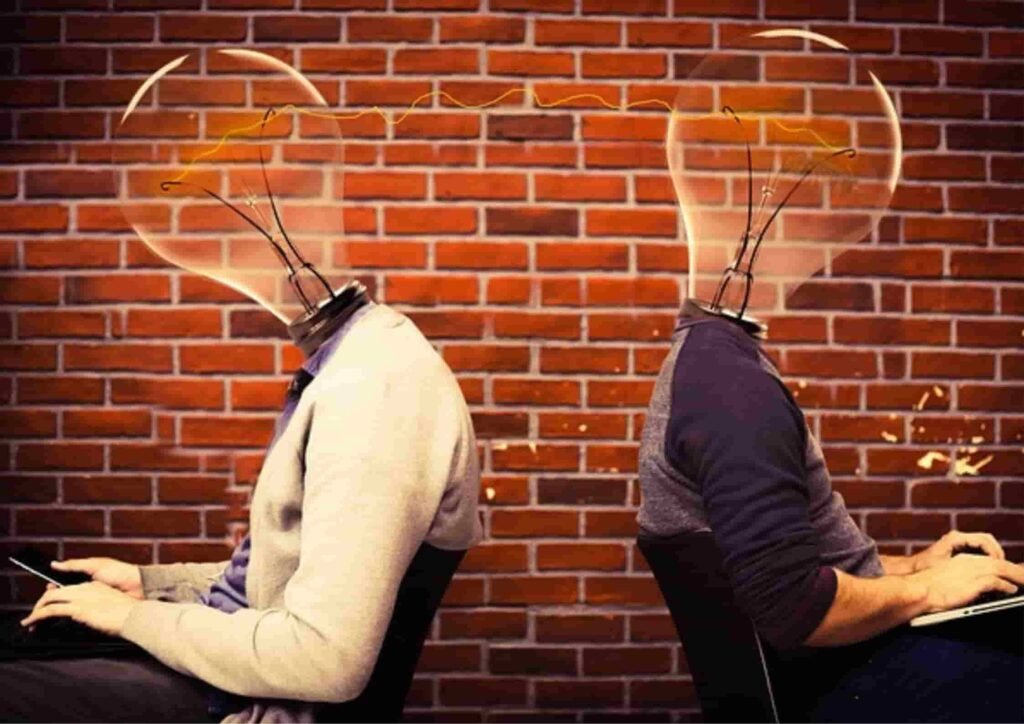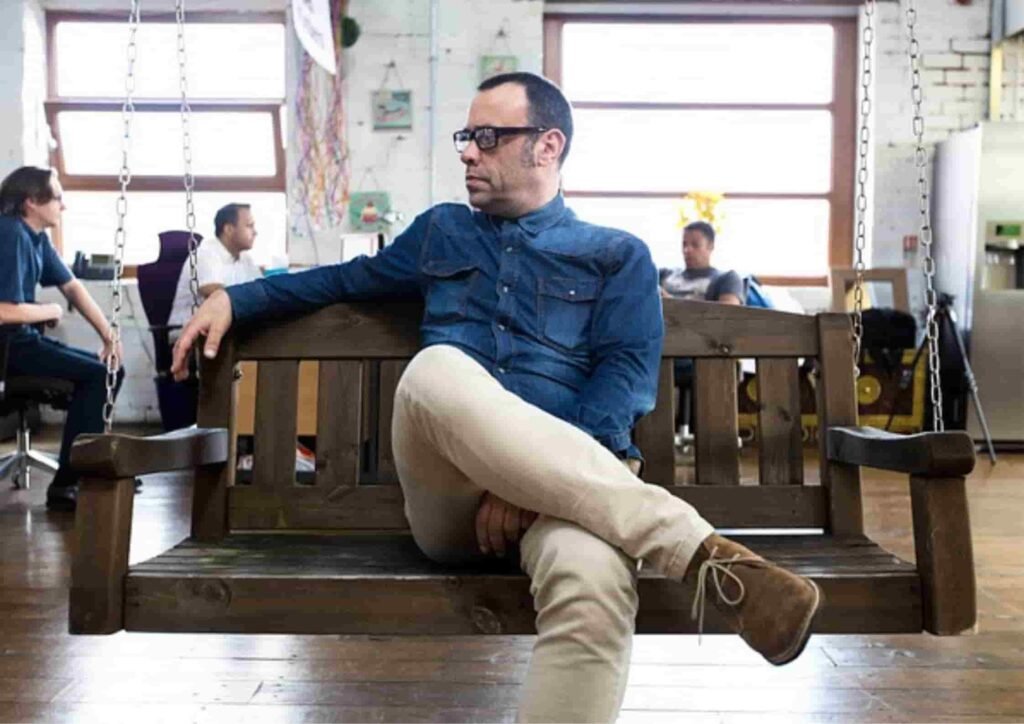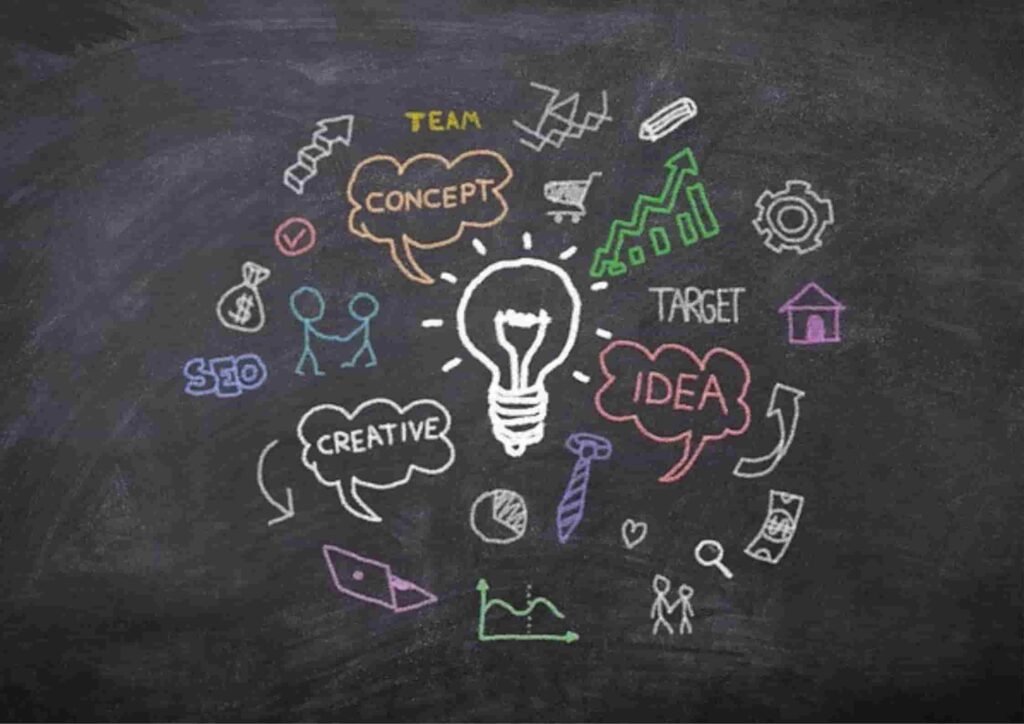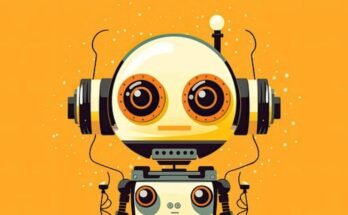AI is changing the way we work, study, and even relax. From suggesting your next YouTube video to writing emails for you, it’s everywhere. But with so much automation, many people worry: “Will my job be safe?”
The truth is, no robot can do every career. Some jobs need skills that only humans have—empathy, creativity, ethical judgment, and adaptability. These are the areas where AI struggles, and where humans will always be in demand.
Let’s look at the careers AI can’t easily replace and why they are safe choices for the future.
In this blog, we will tell you about jobs that can’t be replaced by AI.
Why Robots Can’t Do Everything
About 3 out of 10 (30%) of US workers are concerned about their jobs. They think that AI will replace their role. Job displacement is the real concern of the 21st century.
Yes!! No doubt, AI is a powerful tool, but it has limits. It can process data, auto-complete emails, act as a virtual assistant (Siri, Alexa, etc), and act as a writing assistant (Grammarly, Wordtune). In all these tasks, AI’s role is to assist humans. So, don’t worry, they are not yet smart enough to mimic human intelligence, decision-making, and most importantly, they lack empathy, emotional intelligence, and creativity.
Here’s what holds AI back
Emotions
Machines are emotionless. They cannot sympathize with someone who has just lost his/her loved ones or cheer a nervous person. They cannot interpret facial expressions and tell whether that person is sad or happy. But humans do have this ability
Creativity
AI can make art, but it cannot invent cultural trends or spark feelings like humans do.
Ethics And Judgement
Robots don’t have morals or gut instincts. They work on algorithms. If the algorithms say theft is good, then they will say it’s good no matter how bad it is.
Critical Thinking
AIs cannot improvise solutions to unexpected problems. It learns from data or scenarios that have already happened and predicts the future accordingly.
Example
As you know, when the coronavirus brought chaos into our lives, there were only humans who had the instinct to find solutions, not AI. Yes, it may have assisted humans.
Human-First Careers That Stay Strong
Here are 30 AI Proof careers, where humans will always have the upper hand—and how you can prepare for them.
1. Healthcare Professionals (Doctors, Nurses, Therapists)
Why it’s safe: Healthcare needs empathy, quick decisions, and personal care. AI can suggest treatments, but only humans can provide comfort and reassurance during tough times.
Healthcare jobs will grow 12.6% from 2021 to 2031, adding 2 million jobs. So, this job can’t be replaced by AI
How to start: Start by getting an MD degree, doing a residency, or volunteering at clinics or caregiving centers.
Key skills:
- Strong communication to explain medical details and give support. patients.
- Critical thinking for diagnosing and making treatment plans.
- Emotional strength to handle stress, emergencies, and to sympathize with patients and their families.
2. Teachers and Educators
Why it’s safe:
Teaching is a noble profession. Because it’s not just about delivering knowledge or knowing something that others don’t. It’s about encouragement, patience, and a good connection with students, which inspires them to learn and grow. And mentors work on the holistic development of their students.
In contrast, AI just delivers knowledge and will tell you things that even your teachers may not know. But AI has no idea whether you have understood the concept or not. In short, AI lacks the above-mentioned properties of educators. So, this job also can’t be replaced by AI.
How to start: Get a degree in a subject of your choice, then start working as a tutor or in support roles.
Key skills:
- Clear communication and public speaking skills are important to convey ideas.
- Adaptability and patience allow teachers to cater to student needs and to handle classroom dynamics.
- Creativity is a key ability of teachers for designing interesting lesson plans.
3. Social Workers
Why it’s safe: Social work needs trust, empathy, and emotional intelligence to navigate difficult social situations. AI doesn’t possess these abilities.
How to start: Volunteer with community programs or local organizations to understand the hardship people face.
Key skills:
- Empathy and active listening are necessary for developing trust and understanding clients’ needs
- Problem-solving skills help in handling complex family and social issues.
- Time management is important to handle a high volume of cases
4. Creative Professionals (Writers, Designers, Artists)
Why it’s safe: Creativity is a building quality of humans. They are emotionally intelligent beings. Yes!! AI can create. But it misses the originality and emotional storytelling ability, so this job can’t be replaced by AI.
How to start: Build a portfolio of your work and share it on different platforms like Medium, Behance, etc
Key skills:
- Again! creativity allows creators to think out of the box and build something unique. This is how the world progresses.
- Strong communication skills are required to meet the client’s needs.
- Time management is an odd term for creators, but it’s important to complete a project on time.
5. Psychologists and Counselors
Why it’s safe: Mental health support requires trust, empathy, and human care. These are the qualities that only humans can have, not any bot.
How to start: Volunteer at mental health centers to understand the needs of each person.
Key skills:
- Empathy and good listening will help you understand the problem and solve it.
- Analytical thinking will allow you to make personalized treatment plans.
- If patients do not trust you, they will not tell you their problems. Only good communication skills can help you build patient trust.
6. Human Resources Managers
Why it’s safe: Over 65% of US workers are worried that AI may replace HR decision-making. Their worry is understandable because AI is already handling tasks like data analytics. But it cannot handle social interactions with workers. Only humans can understand humans.
So, good news for you! Since AI lacks the property of emotional intelligence, it won’t be replacing humans in this matter.
How to start: Work in recruitment or admin support to develop management skills.
Key skills:
- Interpersonal and conflict resolution skills will help manage different employee needs.
- Decision-making and organizational skills help in policy making, recruitment, and policy implementation.
- Emotional intelligence, too. Maintain positive workplace culture.
7. Sales and Account Managers
Why it’s safe: Sales need trust and personal relationships that humans can build. AI can provide insights, but it can’t close deals.
How to start: Begin with entry-level sales jobs and build negotiation skills.
Key skills:
- Negotiation skills are important for sealing deals.
- Emotional intelligence will help you understand client needs.
- Time management will allow you to handle multiple clients.
8. Lawyers and Legal Professionals
Why it’s safe: It’s true that AI can suggest penalties and legal charges. But it can’t judge or make decisions on instinct. Law requires ethics and productive reasoning; AI can’t do that.
How to start: Start working as a paralegal or legal assistant to gain experience in the field .
Key skills:
- Critical thinking and analytical skills are important for defining laws and case building.
- Good communication skills are required to understand the client and case presentation.
- Attention to detail will allow you to avoid errors and misjudgments.
9. Marketing Strategists
Why it’s safe: Marketing requires connecting with people because every person you meet in daily life is your potential client. But AI does not know this.
How to start: Offer marketing help to small businesses at a low percentage to gain experience.
Key skills:
- Creativity and storytelling skills will help you design engaging campaigns.
- Data analysis is important for making strategies.
- Teamwork and collaboration are important if you are working with writers, designers, and multiple partners.
You may find this article valuable: How to Avoid AI Detection Online: 5 Best Free Tools
10. Business Leaders
Why it’s safe: Leadership requires vision, ethics, and inspiration. AI certainly can’t lead people. And the most important thing is that AI cannot have a bank balance on the basis of which we start a business.
How to start: Volunteer yourself for leading small projects and build leadership skills.
Key skills:
- Vision and strategic thinking will lead your business to success.
- Adaptability will allow you to pivot strategies in difficult situations.
11. Event Planners
Why it’s safe: Event planning needs creativity, flexibility, and quick decision-making. AI can’t handle surprises.
How to start: Start by organising small family functions and community events, or school functions if you are a high school student.
Key skills:
- Organization and multitasking skills will let you handle multiple vendors
- Problem-solving to make last-minute changes
- Creativity will help you craft unique event ideas.
- Time management is commonly important in every field of work.
12. Public Relations Specialists
Why it’s safe: PR is about creating a good image and handling problems smartly and politely, so the public continues to trust the company or people. AI lacks these properties. So it can’t be replaced by AI.
PR depends on tact, intuition, and trust—AI can’t handle crises.
How to start: Build your profile by managing social media for small groups.
Key skills:
- Strong communication skills.
- Crisis management skills.
- Writing skills for crafting a press release.
13. Project Managers
Why it’s safe: Project managers head teams, solve problems, and ensure goals are met. AI can’t lead a team, yes, it can assist, but leading on its own is a different thing.
How to start: Start managing small projects and learn tools like Trello.
Key skills:
-
Leadership
- Problem-solving.
14. Personal Trainers and Fitness Coaches
Why it’s safe: Fitness Coaching needs motivation and personalized plans. AI can’t encourage you unless you tell it to. It can’t be replaced by AI.
How To Start: Start training friends and family members and see the results.
Key skills:
- Motivation and communication.
- Adaptability for different clients.
- Knowledge of exercise and health.
15. Journalists and News Analysts
Why it’s safe: Journalism is the kind of profession in which you always need to ask questions to yourself and to others. This needs curiosity, investigation, and human judgment. AI cannot ask questions to any user unless you tell it to ask me a question.
If AI is told to ask only selected questions, journalism becomes a joke—like politicians deciding which policies can be questioned.
How to start: Start writing blogs or articles for local newspapers.
Key skills:
- Critical thinking and curiosity.
- Writing and storytelling.
- Time management.
16. Chefs and Culinary Experts
Why it’s safe: Cooking is an art. Chefs make flavours. They can tell whether a particular dish is spicy or sweaty, just by tasting it. AI simply can’t taste a dish. Isn’t it obvious? Uggghhh!! So, we need to tell you this as well
How to start: Start making dishes for your friends, family, and colleagues.
Key skills:
- Attention to detail.
- Creativity
- Organization in busy kitchens.
17. Occupational Therapists
Why it’s safe: It’s a sensitive profession. Occupational therapists focus on mental health challenges and create individualized recovery plans. They also help people manage the daily activities that matter most in their lives. It’s a multi-role therapeutic profession. Since AI lacks emotional intelligence, it cannot simply look at a person and understand that he or she is unwell just by reading their face.
How to start: Start by volunteering in rehab centers.
Key skills:
- Empathy and listening.
- Problem-solving.
- patience
18. Childcare Workers
Why it’s safe: It’s simple. The childcare profession requires love, patience, and creativity. AI can’t replace human care.
How to start: Start by babysitting or working in daycare centers.
Key skills:
- Patience and empathy.
- Creativity in activities.
- Communication with parents.
19. Financial Advisors
Why it’s safe: Financial planning depends on trust and understanding personal goals. AI can suggest ideas like investing in Bitcoin, the stock market, etc. But it doesn’t know you and your future goals and needs.
How to start: Start by managing your family budget or at least your own budget.
Key skills:
- Analytical thinking.
- Interpersonal trust-building.
- Time management.
20. Speech-Language Pathologist
Why it’s safe: Helping people to communicate requires patience and personal tactics. A lot of Sci-fi movies will depict that AI is becoming an emotionally intelligent bot, but in reality, it’s not true. AI can’t make people talk.
How to start: Start by volunteering with communication support groups.
Key skills:
- Patience and empathy.
- Problem-solving.
- Interpersonal trust.
21. Veterinarians
Why it’s safe: Veterinarians need similar skills to doctors and psychologists since treating animals requires both empathy and practical expertise.
How to start: Start to volunteer at animal shelters and gain practical experience.
Key skills:
- Empathy and communication.
- Diagnostic problem-solving.
- Attention to detail.
22. Firefighters and Emergency Responders
Why it’s safe: This profession also cannot be replaced by AI. Because taking emergencies requires courage, teamwork, and quick thinking, AI does not have these properties.
How to start: Start by joining local safety programs.
Key skills:
- Fast decision-making.
- Physical strength.
- Teamwork and communication.
- Time management.
23. Clergy and Religious Leaders
Why it’s safe: Qualities such as spiritual guidance and emotional support belong only to humans; AI is no match for them.
How to start: Volunteer in community or faith-based groups.
Key skills:
- Empathy and listening.
- Public speaking.
- Leadership and connection.
24. Politicians and Public Servants
Why it’s safe: Representing people and making policies work needs empathy, ethics, and human understanding—AI can’t represent people.
How to start:
- Run for the presidency of the student society in your school, college, or university.
- Attend local meetings and get involved in communities.
Key skills:
- Communication and public speaking.
- Ethical decision-making.
- negotiations
25. Tradespeople (Electricians, Plumbers, Carpenters)
Why it’s safe: Vocational jobs require hands-on skills and problem-solving—AI can’t replace this.
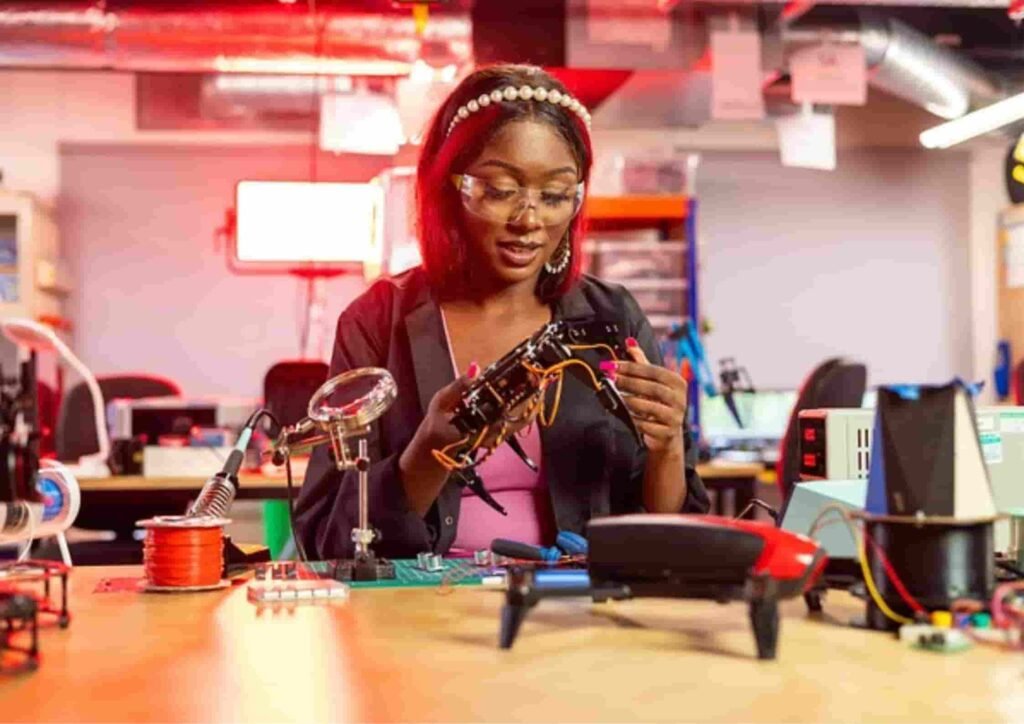
How to start: Do small DIY projects or work as an apprentice.
Key skills:
- Troubleshooting and problem-solving.
- Manual skills and attention to detail.
- Communication with clients.
26. Scientists and Researchers
Why it’s safe: Science is based on observation, hypothesis, and experiments. AI certainly can’t observe anything unusual. So it’s not a question anymore that AI will replace human curiosity and intuition.
How to start: Pursue higher education (BS, MS, PhD) in a science field, and volunteer in labs or research projects.
Key skills:
- Critical thinking and problem-solving.
- Curiosity and creativity for research ideas.
- Data analysis and attention to detail.
27. Architects and Urban Planners
Why it’s safe: Architecture is a profession where human creativity is at its peak. Designing buildings and cities requires aesthetics and cultural understanding. AI can generate blueprints, but it cannot understand how people feel in a space or the social impact of design.
How to start: Study architecture or civil engineering, and practice with design software while sketching creative ideas.
Key skills:
- Creativity and visualization.
- Technical and design knowledge.
- Communication with clients and teams.
28. Entrepreneurs and Innovators
Why it’s safe: Entrepreneurship again requires creativity, understanding of human values, leadership, and motivation. AI can provide insights, but it cannot take risks and inspire teams. As we all know, AI works on algorithms. I repeat!! Algorithms.
How to start: Begin with small businesses or side projects, and learn from mentors.
Key skills:
- Vision and leadership.
- Adaptability and problem-solving.
- Decision-making under uncertainty.
29. Skilled Farmers and Agricultural Specialists
Why it’s safe: Farmers need to adjust to weather conditions, land requirements, and community needs. Their real-world experience and judgment are essential for ensuring food security.
How to start: Work on local farms, join agricultural training, or study agricultural sciences.
Key skills:
- Problem-solving and adaptability.
- Knowledge of crops, soil, and environment.
- Physical stamina and practical skills.
30. Airline Pilots and Flight Crew
Why it’s safe: Flying an aircraft is a sensitive responsibility because passengers’ lives depend on the pilot’s skills. Yes, autopilot systems exist, but only human pilots can take charge and ensure safety in emergencies.
In short, human pilots are irreplaceable for safety and leadership in aviation.
How to start: Join a flight school or aviation academy, and get licensed as a pilot.
Key skills:
- Strong decision-making and focus.
- Communication and teamwork.
- Technical knowledge of aviation systems.
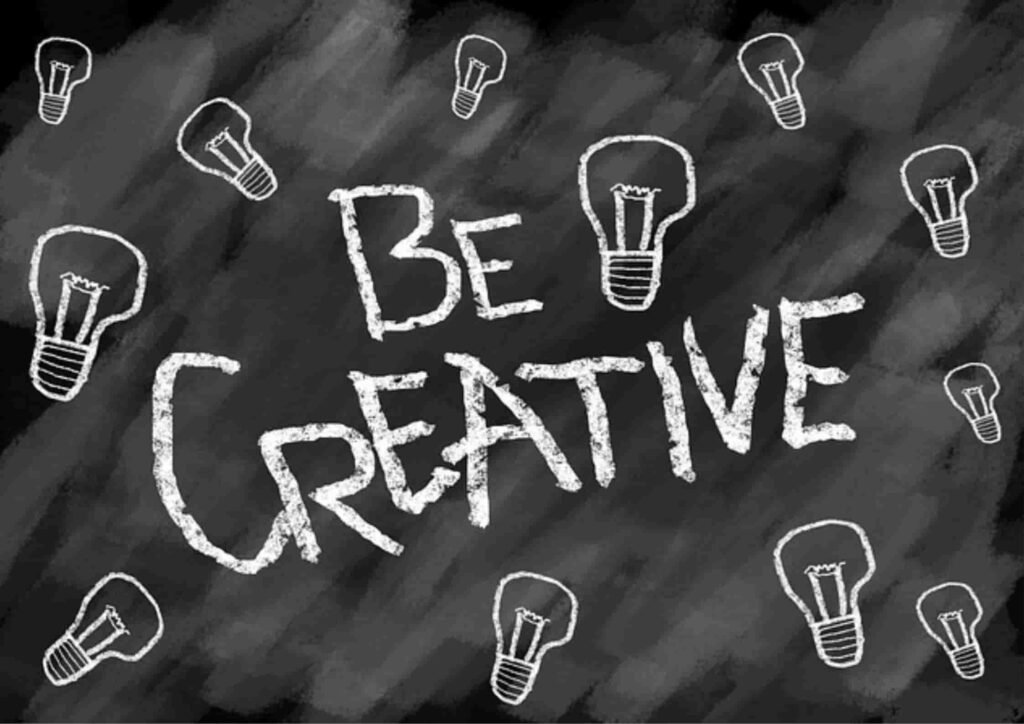
How to Stay Safe in the AI Future
Always Remember!
“AI is a tool, not a replacement”.
To keep your career safe, focus on these skills,
- Soft skills like empathy, creativity, leadership, and communication.
- Experts say that soft skills are as important as hard skills
- Keep learning about new digital skills and mix them with human skills .
- Make yourself adaptable as industries will change, but human-centered skills will always matter.
Final Thoughts
AI is powerful, but it cannot replace the human touch. Jobs that rely on creativity, empathy, and adaptability will always be safe. If you build your career in these fields, you won’t just survive—you’ll thrive in the future of work.
Remember: AI can assist, but only humans can connect, inspire, and lead.
FAQ’s
Which jobs are replaced by ai in future ?
Roles in manufacturing, translation, and basic administrative work are at high risk due to automation, most likely to be replaced
Can sales jobs be replaced by ai ?
No, AI cannot replace sales jobs completely; humans will remain essential because this role requires Emotional Intelligence, Relationship Building, Human Connection, and creativity

